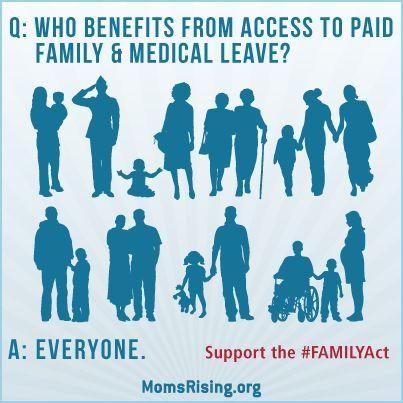
Work Over Family? Why Family Values in the Workplace Matter To Me
This week I had the opportunity to attend the White House Summit on Working Families, where I got to meet advocates, labor leaders, media, and other working mothers, all looking to address issues of workplace flexibility, equal pay, workplace discrimination, opportunities for low-wage workers, and other issues.
The summit was particularly significant to me because it focused on women as breadwinners. As a single mother of an energetic 4-year-old, I know the difficulty of balancing a demanding career while single-handedly providing for my daughter, and making time to enjoy the first years of her young life.
As much as I was overcome with joy when I first held her in my arms, I also understood that the decision to be a single mother and head of household would require many difficult choices and sacrifices such as putting my career growth on hold. But I was prepared for the challenge. Those difficulties began just before my daughter was born.
When I was eight months pregnant with my daughter I faced a difficult choice between my job and my Masters in Management program because it became harder and harder to get approvals at work to leave early to make it to class on time or arrive late due to morning doctor’s appointments. I could quit my job to pursue a graduate degree or give up on my educational goals and keep working to have health insurance to cover my prenatal care and the assurance that my daughter would be born into a financially stable single parent home.
Thanks to the enactment of California SB 1661, I was eligible to apply for Paid Family Leave through the state’s Family Temporary Disability Insurance program to bond with my newborn. Under this paid leave policy however, I was only granted a portion of my salary, which was not sufficient to make ends meet. Also, according to income guidelines I made a little too much money to qualify for any other type of assistance. Add to that the cost of diapers and baby formula, student loan, rent and car payments, and I found myself calling creditors to ask for payment extensions and lower payments on my bills. The financial stress of that time took away from my joy as a new mother.
To minimize my financial hardships I worked until three days prior to giving birth to my daughter and went back to work exactly six weeks later. My heart ached because I missed her -- she was only 40 days old -- but job demands and the commitment to my community forced me to get back to work. I had a Census enumeration campaign I had to help lead to ensure Latinos were counted and our communities received the proper representation.
Through my current work with Mi Familia Vota Education Fund and the Family Values at Work coalition I learned that there are some states that do not offer any type of paid leave. This reminded me of the many hardships my parents had to endure as we were growing up.
My mother was a stay-at-home mom my and my father never spoke up at work as a manual laborer because of his limited English and his fear of losing his job that supported five children. Years into his work, my father was injured but continued working with a fractured back because any time off to go to the doctor, if approved without pay, would mean an incomplete rent payment, no groceries that week, or requesting another extension on those past due payments. He eventually had three surgeries and was declared permanently disabled.
I work as an immigrant rights advocate for a nonprofit organization and see immigrant women facing similar discrimination because of their status. They fear losing work and hourly pay due to pregnancy. Women in mixed status families worry daily whether a family member -- usually a wage earner -- will suddenly disappear, spirited away by an immoral immigration enforcement program that carries out needless deportations. What happens to them, as immigrant women, is an injustice
It is because of my experiences as the daughter of one of the millions of over-worked and under-paid immigrant workers, and as a single mother and head of household, that I understand the importance of paid family leave and paid sick leave.
Working families need support for The Family and Medical Insurance Leave (FAMILY) Act, a proposal that would provide workers with up to 12 weeks of partial income when they face a serious health condition, including pregnancy and childbirth recovery; a serious health issue involving a child, parent, spouse or domestic partner; the birth or adoption of a child. It also would guarantee access to paid sick days, something that many workers in the U.S. -- including immigrants -- do not have.
I advocate for these issues because I want my daughter to grow up in a society that provides and protects workers through fair and equitable policies.


The views and opinions expressed in this post are those of the author(s) and do not necessarily reflect those of MomsRising.org.
MomsRising.org strongly encourages our readers to post comments in response to blog posts. We value diversity of opinions and perspectives. Our goals for this space are to be educational, thought-provoking, and respectful. So we actively moderate comments and we reserve the right to edit or remove comments that undermine these goals. Thanks!